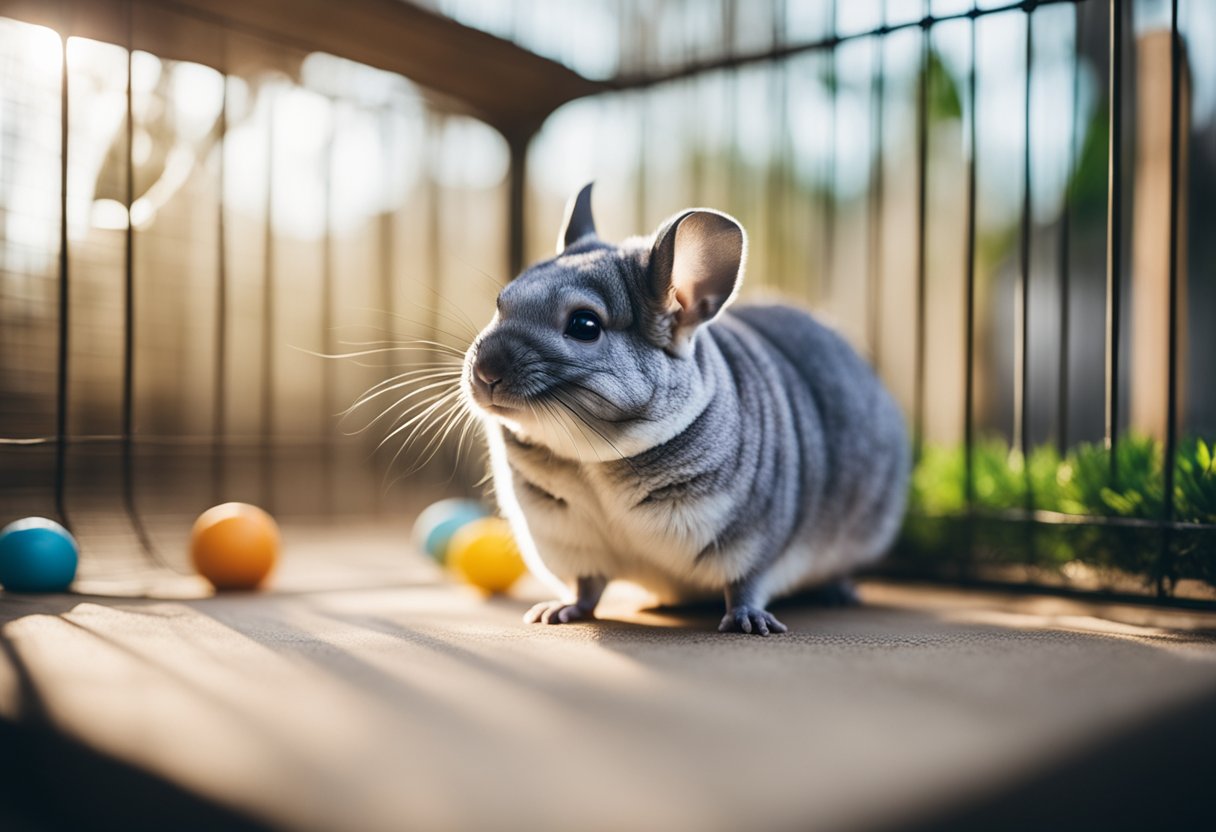How Long Do Pet Chinchillas Live? Understanding Their Lifespan and Care Needs
Pet chinchillas make wonderful companions, but how long can you expect them to be by your side? The average lifespan of a pet chinchilla is between 10 to 20 years, with some individuals living even longer when given the right care. Understanding this lifespan can help you prepare for the commitment involved in caring for one of these unique pets.

Caring for your chinchilla properly can significantly impact its longevity. Factors such as genetics, diet, and living environment all play a crucial role in how long your chinchilla lives. By providing a healthy and safe space for your pet, you can help ensure that it remains happy and healthy for many years.
Key Takeaways
- Pet chinchillas typically live between 10 to 20 years.
- Proper care can extend the lifespan of your chinchilla.
- Providing a healthy environment is essential for your pet’s well-being.
Lifespan of Chinchillas

Chinchillas can live for a long time, especially when they are kept as pets. Understanding their natural life expectancy and the factors that affect their longevity is important for any potential owner.
Natural Life Expectancy
In the wild, chinchillas typically live between 8 to 10 years. They face many challenges, including predators and limited food. In contrast, pet chinchillas tend to live much longer, averaging 10 to 20 years. Some even reach ages up to 30 years with the best care.
The record for the oldest pet chinchilla is slightly over 29 years. Captive chinchillas benefit from protection and regular meals, which support their longer lifespan. Proper diet, environment, and care play key roles in reaching their potential age.
Factors Affecting Longevity
Several factors impact how long your chinchilla will live. Here are some key influences:
- Diet: A well-balanced diet that includes hay, pellets, and occasional treats is essential.
- Healthcare: Regular vet check-ups can catch health issues before they become serious.
- Environment: A safe, clean, and stress-free habitat promotes health.
- Social Interaction: Chinchillas are social animals. Regular interaction can keep them mentally stimulated.
Providing a proper environment and nutrition can significantly enhance a chinchilla’s lifespan. Careful attention to these details can ensure your pet lives a healthy, happy life.
Caring for Your Pet Chinchilla

To care for your pet chinchilla properly, focus on their diet, exercise, and health needs. Proper care can lead to a longer and healthier life for your furry friend.
Optimal Diet
Chinchillas require a high-fiber diet to stay healthy. The best food for them is Timothy hay, which should make up the bulk of their diet. Offer a small amount of specially formulated chinchilla pellets daily.
Limit treats to avoid weight gain. You can include small pieces of dried fruits like raisins occasionally. However, avoid sugary and fatty foods. Fresh water should always be available, changed daily to ensure it stays clean.
Exercise and Enrichment
Chinchillas are active animals and need ample exercise. A large, multi-level cage allows them to climb and explore, which is essential for their physical health. You should also provide them with playtime outside the cage in a safe area.
Toys such as wooden chew sticks and tunnels help keep them entertained. Regular interaction and socialization are important. Rotate their toys to keep things interesting and prevent boredom.
Health Monitoring and Veterinary Care
Regular health checks are crucial. Look for signs of illness, such as changes in eating habits, fur quality, or behavior. You should weigh your chinchilla weekly to monitor their weight closely.
Visit a veterinarian experienced with chinchillas for yearly check-ups. Keep vaccinations and health records up to date. Be aware of common health issues like dental problems and heat stress. Maintaining their environment within the ideal temperature range of 60-70°F helps avoid health issues.
Resources

When caring for pet chinchillas, it’s helpful to access various resources. Here are some useful links that provide accurate information about chinchilla care and lifespan:
- Pet Care Guides
- Look for comprehensive guides to chinchilla care that cover topics like diet, habitat, and health.
- Visit this comprehensive guide on lifespan and care for detailed information.
- Veterinary Advice
- Consulting a veterinarian is crucial. They can provide specific health advice tailored to your pet’s needs.
- Check out this vet-approved lifespan information for expert insights.
- Nutritional Information
- Chinchillas require a special diet for optimal health. Understanding their dietary needs is key.
- Learn about proper chinchilla nutrition from this nutritional resource.
- Community Forums
- Joining forums can connect you with other chinchilla owners. You can share experiences and get tips.
- Explore forums related to chinchilla care and connect with fellow pet owners.
- Research Articles
- Reading scientific studies can provide deeper insights into chinchilla lifespan and health factors.
- Review this detailed article on lifespan considerations for further information.
Using these resources will help you ensure a healthy and happy life for your chinchilla.
Frequently Asked Questions

You may have questions about the lifespan of chinchillas as pets. Below are specific queries that many chinchilla owners or potential owners have regarding their lifespans and care needs.
What is the typical lifespan of chinchillas in a domestic setting?
In a domestic setting, chinchillas typically live between 10 to 20 years. With proper care and a good diet, some chinchillas may even live longer.
Can you tell me the average life expectancy of chinchillas in their natural habitat?
In the wild, chinchillas usually have a shorter lifespan, averaging about 8 to 10 years. They face challenges such as predators and environmental factors that can limit their longevity.
What are the key factors that influence the longevity of pet chinchillas?
The longevity of pet chinchillas is influenced by several factors, including diet, habitat, and health care. A balanced diet and a clean, safe living space are crucial for their well-being.
Do chinchillas require special care to ensure a longer lifespan as pets?
Yes, chinchillas do require specific care. Regular vet visits, a proper diet, and clean living conditions are essential for promoting their health and longevity.
Is there a difference in life expectancy between wild and captive chinchillas?
Yes, captive chinchillas generally live longer than wild ones. In captivity, they are protected from predators and receive better nutrition and care.
How does the care provided by chinchilla owners affect their pets’ lifespan?
The care you provide directly impacts your chinchilla’s lifespan. Good nutrition, exercise, and mental stimulation are all vital in helping your chinchilla live a longer, healthier life.

